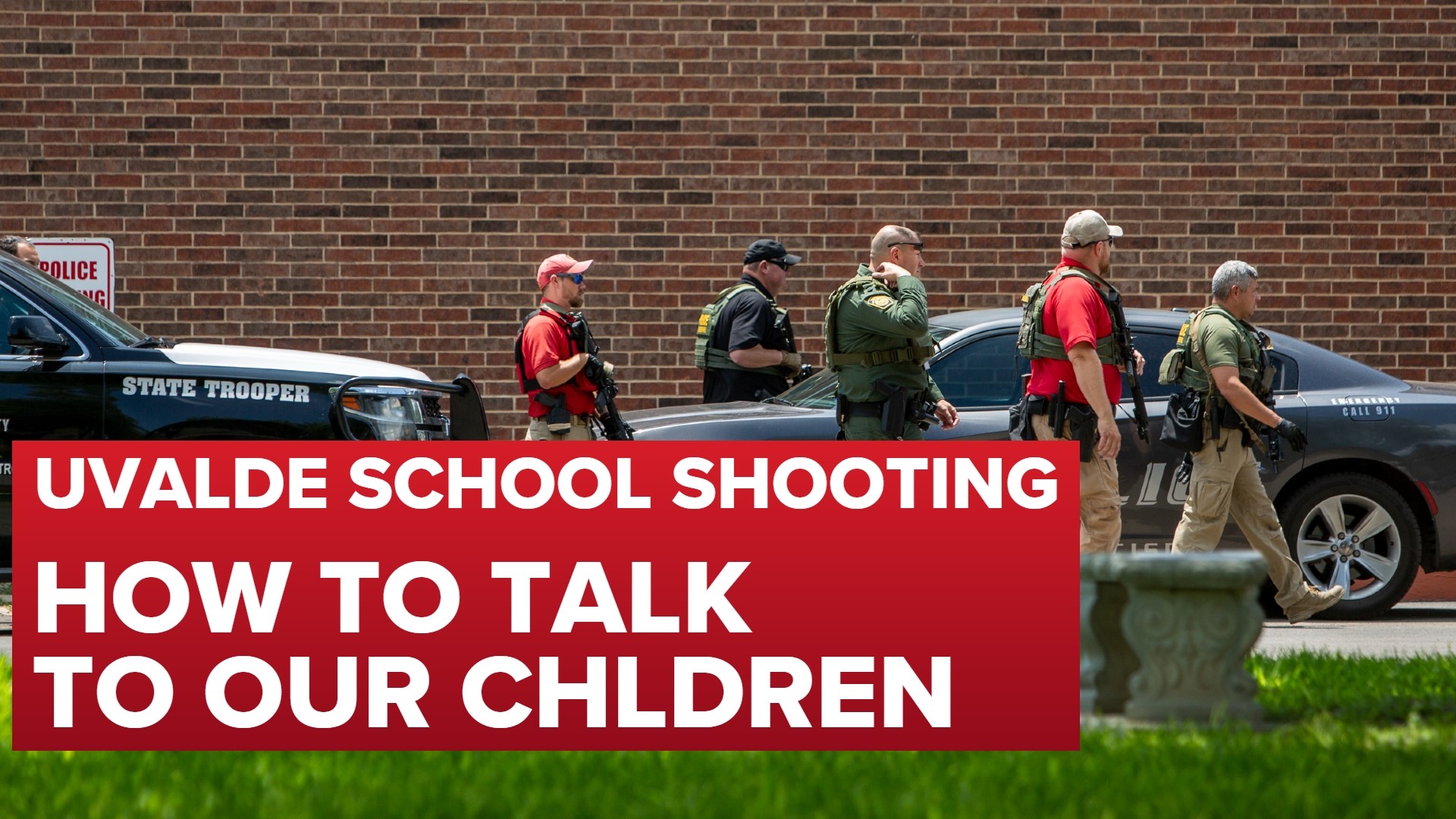WASHINGTON — Parents are finding themselves preparing for or already having some tough conversations with their children surrounding violence.
It comes after an 18-year-old gunman opened fire Tuesday at a Uvalde, Texas elementary school killing at least 19 children and two adults, according to officials. The gunman was killed by law enforcement.
With violence affecting our children here at home and 1,600 miles away in Texas, we spoke with clinical psychologist Dr. Linda McGhee about how to start the conversation with children of any age.
Dr. McGhee said that parents who want to discuss what happened with their kids should make space for the conversation.
"Don't try to do it on the fly. Sit down with your children and have the space to start talking about this."
Dr. McGhee said parents should speak with their children in a developmentally appropriate way.
"Reassure them that you're doing your best to make it as safe for them as possible, that schools are generally safe," Dr. McGhee said. "With elementary school children you want to reassure them that they are safe. Middle school and high school children are going to have more opinions and thoughts about violence in schools and all of the policy issues... Answer their questions, try to be as truthful as you can."
But McGhee notes that children are already stressed due to the ongoing coronavirus pandemic and other factors, so parents should do their best to gauge how their children are feeling before engaging in this type of discussion.
"I want to emphasize the point that we still have to be cognizant of the fact that we're talking to them in light of the fact that they're already stressed and anxious and depressed at record levels," McGhee said. "We may want to let up a little bit on these kinds of discussions based on where your child is right now."
When it comes to younger kids, McGhee said not to presume that your child doesn't know what's going on because even if they don't have access to social media, they're friends do, and they talk to each other. To start that conversation, keep it simple.
"You want to start with just the basic facts about what happened. Children were hurt in a school and their teacher was hurt. You want to start a discussion and give them an opportunity to ask questions, and then you want to maintain some sort of normalcy. Maintain your home routines and your family routines," McGhee said. "But you don't want to run away from it.
McGhee emphasized that speaking about what's happening is better than keeping quiet about it.
"You don't want to avoid questions, and you don't want silence. Because children fill in all gaps, and they make presumptions and they jump to conclusions, and they have fantasies in their minds about what actually is happening if you create that void with your silence. Your silence is saying something to them."
When it comes to parents who may be struggling, McGhee's advice is to take care of yourself. Some of her tips for kids can also be applied to adults, like limiting social media and news intake when needed.
Dr. McGhee says that while the core conversation may be about violence in schools, it is also an opportunity to talk about respecting others and respecting differences.
"To just really talk to our children about loving and caring and respecting others."

